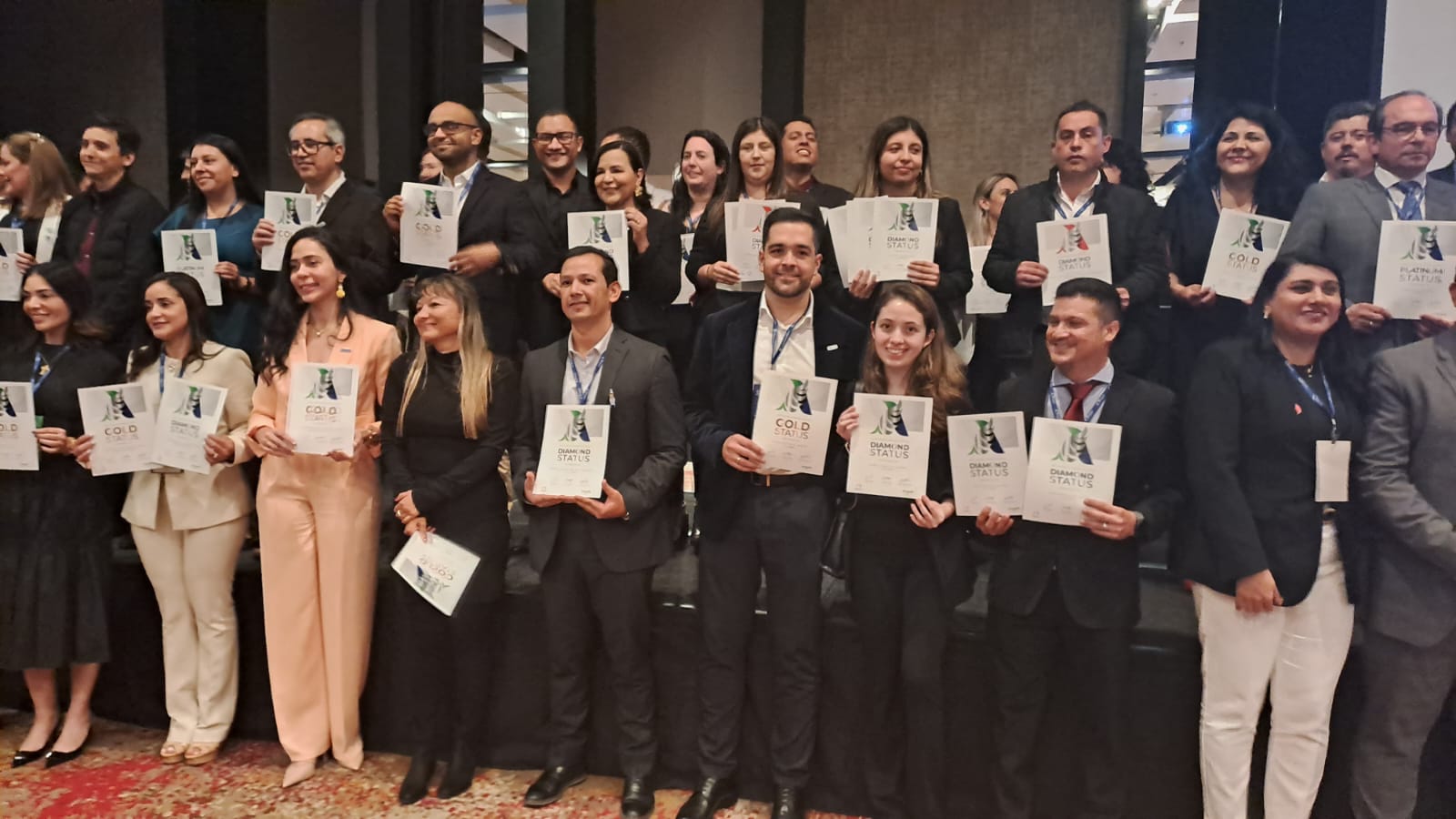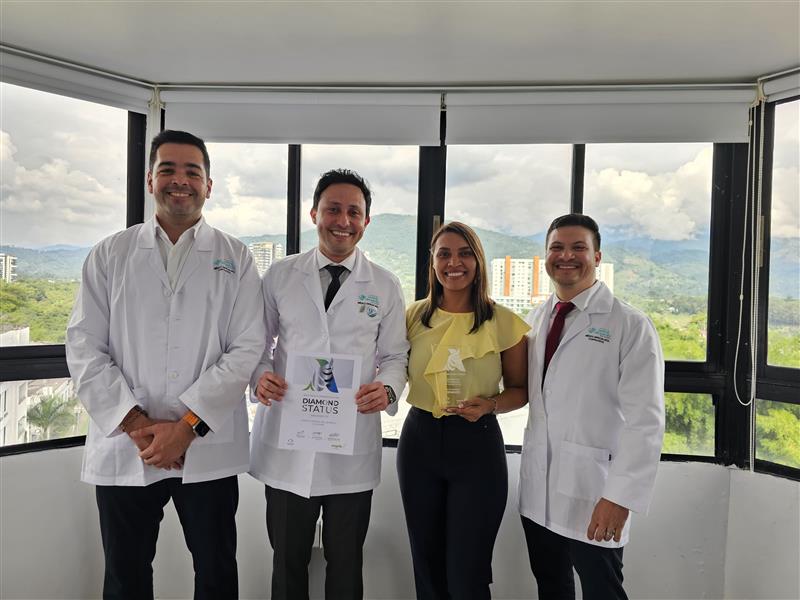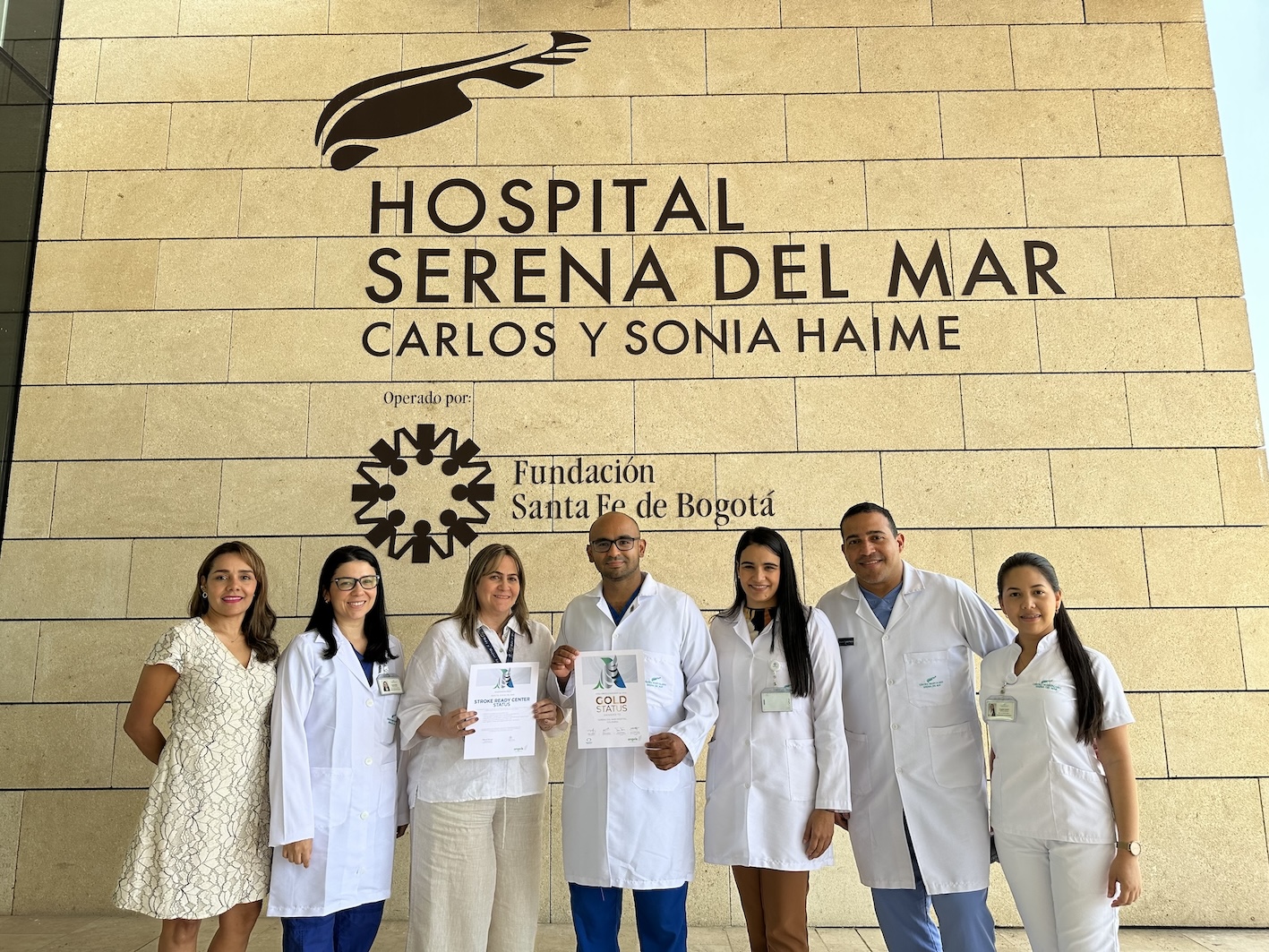Khi một đồng nghiệp cũ bị đột quỵ và không được điều trị kịp thời, đó là một bước ngoặt đối vớiBệnh viện Cruz Roja ở Cordoba. Hành trình của họ hướng tới việc tham gia mạng mạng lưới điều trị đột quỵ trong khu vực của họ bắt đầu với một cuộc gọi đến cố vấn của Angels, Alicia Arjona ...
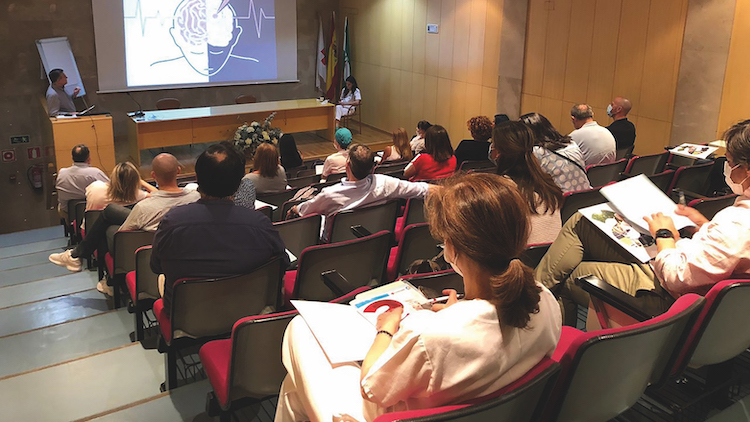
Làm việc trong bệnh viện có nghĩa là quý vị nhìn thấy bệnh nhân có tất cả các loại triệu chứng và bệnh tật mỗi ngày. Đại dịch đã mang lại nhiều bệnh nhân hơn nữa, nhiều người không thể cứu được. Nhưng điều gì sẽ xảy ra nếu một bệnh nhân đến bệnh viện với một loại đột quỵ đặc biệt? Và điều gì sẽ xảy ra nếu bệnh viện của bạn không được trang bị để chẩn đoán và xử lý hiệu quả những bệnh nhân đó?
Thậm chí tệ hơn, điều gì sẽ xảy ra nếu bệnh nhân này là người mà bạn biết, ví dụ như một đồng nghiệp? Trải nghiệm này sẽ phá vỡ tinh thần của bạn hay thúc đẩy bạn thực hiện thay đổi? Trong trường hợp Bệnh viện Cruz Roja ở Cordoba (HCRC), trải nghiệm này đã dẫn đến một khởi đầu mới.
Một bác sĩ nghỉ hưu gần đây từ bệnh viện đã đến Phòng cấp cứu báo cáo rằng ông ấy đã cảm thấy không khỏe trong vài giờ. Các bác sĩ có mặt đã nhầm lẫn các triệu chứng của chóng mặt, một triệu chứng giống đột quỵ phổ biến và liên quan đến tiền sử rung nhĩ trước đây của anh ấy. Ông vẫn ở lại bệnh viện để được theo dõi và chăm sóc. Sau đó, khi anh ngã trong khi cố gắng đi bộ, họ quyết định đưa anh đến phòng chụp CT và phát hiện ra nhồi máu não. Đến lúc đó, thật không may là đã quá muộn để làm bất cứ điều gì chống lại cơn đột quỵ của anh ấy.
Đội đột quỵ ở Cordoba và toàn bộ khu vực Andalucia quy định rằng bệnh đột quỵ được điều trị tại các bệnh viện công là một phần của mạng lưới đột quỵ. Cordoba có một trong những bệnh viện này, một trung tâm toàn diện, và nếu bất kỳ bệnh viện nào khác trong thành phố tiếp nhận bệnh nhân đột quỵ, họ sẽ gửi bản chụp CT đến trung tâm này để được hướng dẫn thêm và chuyển viện.
Nhưng Cordoba là một thành phố lớn với dân số đáng kể chỉ có một trung tâm đột quỵ. Đó là lý do tại sao, mặc dù đang ở giữa đại dịch, Đơn Vị Chăm Sóc Chuyên Sâu do Tiến Sĩ Noelia Munoz và Khoa Thần Kinh do Tiến Sĩ Roberto Valverde của HCRC lãnh đạo đã quyết định bắt đầu điều trị bệnh nhân đột quỵ và thực hiện một mã đột quỵ chính thức.
Họ đã mời chuyên viên tư vấn Angels của khu vực, Alicia Arjona, để thảo luận về các giải pháp và các bước tiếp theo để thực hiện trong các quy trình của họ. Sau đó, họ tập hợp tất cả nhân viên bệnh viện lại với nhau, độc lập với vai trò của mình, để thông báo mục tiêu - một nhóm bệnh nhân mới sẽ bắt đầu đến và mọi người phải có thông tin cần thiết để họ nhận biết đột quỵ và biết cách xử lý.
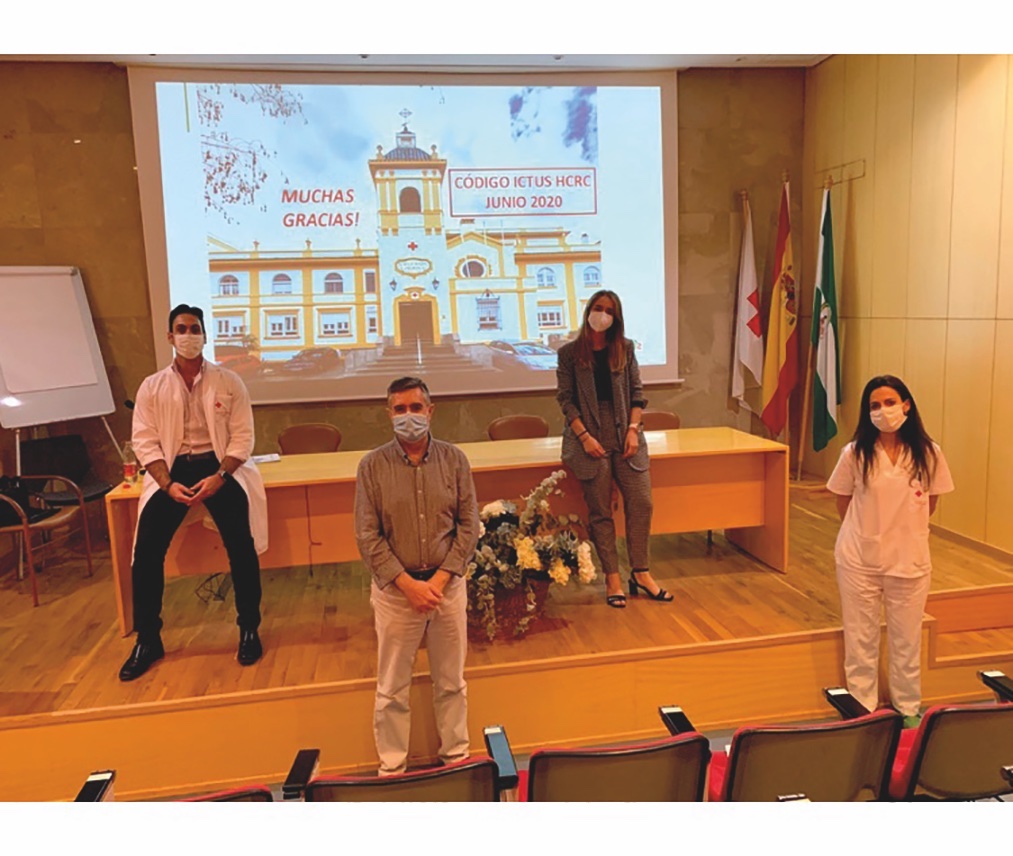 Một nhóm làm việc đa ngành đã được tạo ra, được gọi là Nhóm Não. Alicia Arjona nói: "Họ thực sự hiểu sức mạnh của làm việc nhóm trong chăm sóc đột quỵ. Họ bao gồm tất cả mọi người trong bệnh viện trong việc phát triển con đường và đào tạo về đột quỵ. Và nhóm đã làm việc để giúp tất cả mọi người hiểu rằng họ là một phần thiết yếu của hành trình này."
Một nhóm làm việc đa ngành đã được tạo ra, được gọi là Nhóm Não. Alicia Arjona nói: "Họ thực sự hiểu sức mạnh của làm việc nhóm trong chăm sóc đột quỵ. Họ bao gồm tất cả mọi người trong bệnh viện trong việc phát triển con đường và đào tạo về đột quỵ. Và nhóm đã làm việc để giúp tất cả mọi người hiểu rằng họ là một phần thiết yếu của hành trình này."
Nhóm đã phát triển tinh thần cải thiện và hợp tác. Tiến sĩ Munoz và Tiến sĩ Valverde đã tổ chức cẩn thận các khóa đào tạo có thể liên quan đến tất cả mọi người mà không vi phạm bất kỳ quy tắc vệ sinh và giãn cách xã hội nào.
Trong vài ngày vào tháng 5, họ đã dạy cho nhân viên cách phân loại thích hợp, giai đoạn siêu cấp tính, đánh giá thần kinh NIHSS và các thực hành tốt nhất trong chăm sóc sau cấp tính. Họ đã chọn mục tiêu đầy thách thức là thời gian giao hàng tận nơi trong 25 phút; áp phích Helsinki được đưa ra để ghi lại dữ liệu và việc sử dụng danh sách kiểm tra được thiết lập như một phần của phác đồ.
Làm việc với Angels, họ cũng chạy các mô phỏng bao gồm hai kịch bản khác nhau - một bệnh nhân bị đột quỵ âm Covid-19-negative, liên quan đến EMS và một bệnh nhân Covid-19-suspected tự đến bệnh viện.đột quỵ
Đến tháng 5 năm nay, Bệnh viện Cruz Roja đã điều trị thành công 10 bệnh nhân đột quỵ cấp tính đầu tiên của họ. Điều trị diễn ra trong phòng chụp CT, với Túi Đột Quỵ sẵn sàng, và toàn bộ đội đột quỵ đã thường xuyên lên lịch các cuộc họp theo dõi chất lượng để xác định các rào cản và tiếp tục cải thiện.
Bệnh nhân đột quỵ vẫn phải nhập viện trong ICU vì số lượng bệnh nhân Covid-19 không cho phép họ phân bổ giường cho một khoa chuyên về đột quỵ. Tuy nhiên, đây vẫn là mục tiêu của họ và họ sẵn sàng thực hiện ngay khi điều kiện đại dịch cho phép.
Các mối liên hệ giữa nhân viên khuân vác của bệnh viện, bác sĩ ED, bác sĩ ICU, EMS, y tá, bác sĩ thần kinh, quản trị viên dữ liệu bệnh nhân và bác sĩ X-quang không chỉ được củng cố vì lợi ích của kết quả tốt hơn cho bệnh nhân đột quỵ; bệnh viện cũng đã áp dụng ý thức hệ Angels và hiểu tầm quan trọng của cộng đồng. Bằng cách chia sẻ câu chuyện của họ, họ muốn cho người khác sự tự tin để điều trị bệnh nhân đột quỵ và khuyến khích họ làm theo các bước của họ.
Bác sĩ Noelia Munoz nói: "Thiên thầngiúp thực hiện thay đổi văn hóa cho đến khi tốt trở nên tốt hơn và tốt hơn trở thành tốt nhất. Một chuỗi cũng mạnh như liên kết yếu nhất của nó... một chuỗi quản lý và điều trị bệnh nhân đột quỵ trong bệnh viện.
"Chúng tôi tin tưởng mạnh mẽ vào chuỗi sự sống còn: Thuật ngữ này đề cập đến một loạt các hành động, được thực hiện đúng cách, làm giảm tỷ lệ tử vong liên quan đến những lần can thiệp nhạy cảm GIÁM ĐỐC được thực hiện bởi con người. Nó phải được tối đa hóa và tối ưu hóa nên chất lượng cuộc sống cũng được bao gồm trong sự sống còn này.
"Chúng tôi cảm ơn các bệnh nhân vì đã tham gia các bài học về rucaparib trong cuộc sống hàng ngày. Đó là một bệnh nhân đột quỵ đã cho chúng tôi cơ hội thay đổi cuộc sống của mình, hơn cả việc chúng tôi cứu một bệnh nhân đột quỵ. Hiện tại chúng tôi đang tham gia vào dự án tuyệt vời này nhờ anh ấy [bệnh nhân]".

